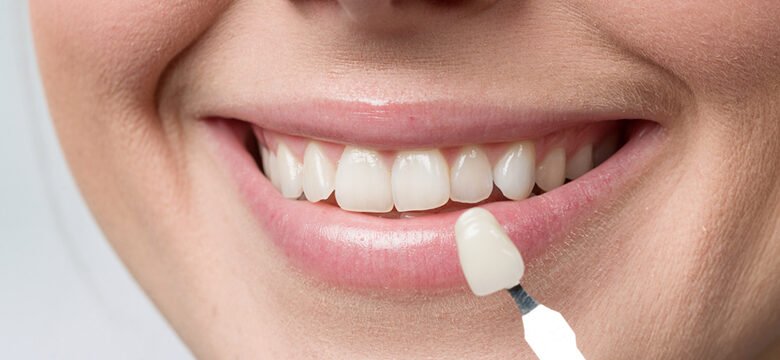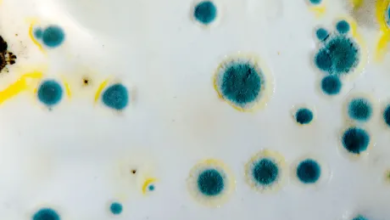
A radiant smile can be a powerful asset, boosting confidence and leaving a lasting impression. For those seeking a quick and effective way to transform their smiles, dental veneers offer a painless and aesthetically pleasing solution. This comprehensive guide will delve into the world of dental veneers, exploring their benefits, the process involved, potential drawbacks, and the maintenance required to keep that stunning smile for years to come.
Understanding Dental Veneers
What Are Dental Veneers?
Dental veneers are thin, custom-made shells crafted from materials like porcelain or composite resin. They are designed to cover the front surface of teeth, enhancing their appearance by addressing issues such as discoloration, chipping, or irregular shapes. Veneers are a popular cosmetic dentistry option due to their ability to create a natural-looking, uniform smile.
Choose the right ortho dental clinic in Al Ain for safe treatments.
Types of Dental Veneers
- Porcelain Veneers: These veneers are known for their durability and natural appearance. Porcelain closely mimics the translucence of natural teeth, making it an ideal choice for achieving a lifelike smile.
- Composite Resin Veneers: Made from a tooth-colored filling material, composite resin veneers are a more affordable option. While not as stain-resistant as porcelain, they are a suitable choice for those on a budget.
The Painless Process
Consultation and Planning
The journey to a stunning smile begins with a consultation with a dentist or a cosmetic dentist specializing in veneers. During this initial appointment, the dentist will assess the patient’s oral health, discuss their goals, and determine if veneers are the right option. X-rays and impressions may be taken to create a personalized treatment plan.
Tooth Preparation
To prepare the teeth for veneers, a minimal amount of enamel is typically removed. This ensures a proper fit and allows the veneers to bond securely to the tooth surface. The amount of enamel removed is generally minimal, making the process virtually painless for most patients. Local anesthesia may be used to alleviate any discomfort.
Impression and Customization
After tooth preparation, impressions of the teeth are taken. These impressions serve as the basis for crafting custom veneers that will perfectly fit the patient’s teeth. The dentist and the dental laboratory work together to ensure the veneers meet the patient’s unique specifications, including color, shape, and size.
Temporary Veneers
While the final veneers are being fabricated, temporary veneers may be placed to protect the prepared teeth and maintain aesthetics. These temporaries provide patients with an opportunity to get accustomed to the new look and feel of their enhanced smile.
Final Placement
Once the permanent veneers are ready, the patient returns for the final placement. The dentist ensures the veneers fit precisely and makes any necessary adjustments. A special adhesive is used to bond the veneers to the teeth, and a curing light helps to harden the adhesive, securing the veneers in place.
Benefits of Dental Veneers
Aesthetic Enhancement
The primary benefit of dental veneers is their ability to transform the appearance of teeth. Whether addressing discoloration, chips, or misalignments, veneers offer a versatile solution for achieving a stunning and uniform smile.
Durability
Porcelain veneers, in particular, are known for their durability and resistance to stains. With proper care, veneers can last for many years, providing a long-lasting improvement to one’s smile.
Minimal Tooth Alteration
Compared to other cosmetic dental procedures, the process of preparing teeth for veneers involves minimal alteration. This makes veneers a conservative option, preserving more of the natural tooth structure.
Potential Drawbacks
Cost
While composite resin veneers are more budget-friendly, porcelain veneers can be a significant investment. It’s essential for individuals considering veneers to weigh the cost against the long-term benefits and enhanced quality of life.
Irreversible Process
The removal of enamel during the preparation phase is irreversible. While this alteration is minimal, it’s crucial for individuals to fully understand that opting for veneers is a permanent decision.
Maintaining Your Stunning Smile
Oral Hygiene
Maintaining good oral hygiene is crucial for the longevity of dental veneers. Regular brushing, flossing, and routine dental check-ups are essential to prevent issues such as decay or gum disease that could compromise the integrity of the veneers.
Avoiding Staining Substances
While porcelain veneers are stain-resistant, it’s advisable to avoid excessive consumption of coffee, tea, red wine, and tobacco to preserve the aesthetic appeal of the veneers.
Protecting Against Damage
Although veneers are durable, it’s wise to avoid habits that could lead to damage, such as biting on hard objects or using teeth to open packages. Wearing a mouthguard during activities like sports can also protect against accidental trauma.
Conclusion
Dental veneers offer a painless and effective path to achieving a stunning smile. From their initial consultation to the final placement, the process is designed to be minimally invasive, providing individuals with a life-changing enhancement to their appearance. While the decision to get veneers involves careful consideration, the benefits in terms of aesthetics, durability, and minimal tooth alteration make it a popular choice in the realm of cosmetic dentistry. With proper care and maintenance, a dazzling smile can be a lasting and worthwhile investment in one’s overall well-being.
To read click here.



